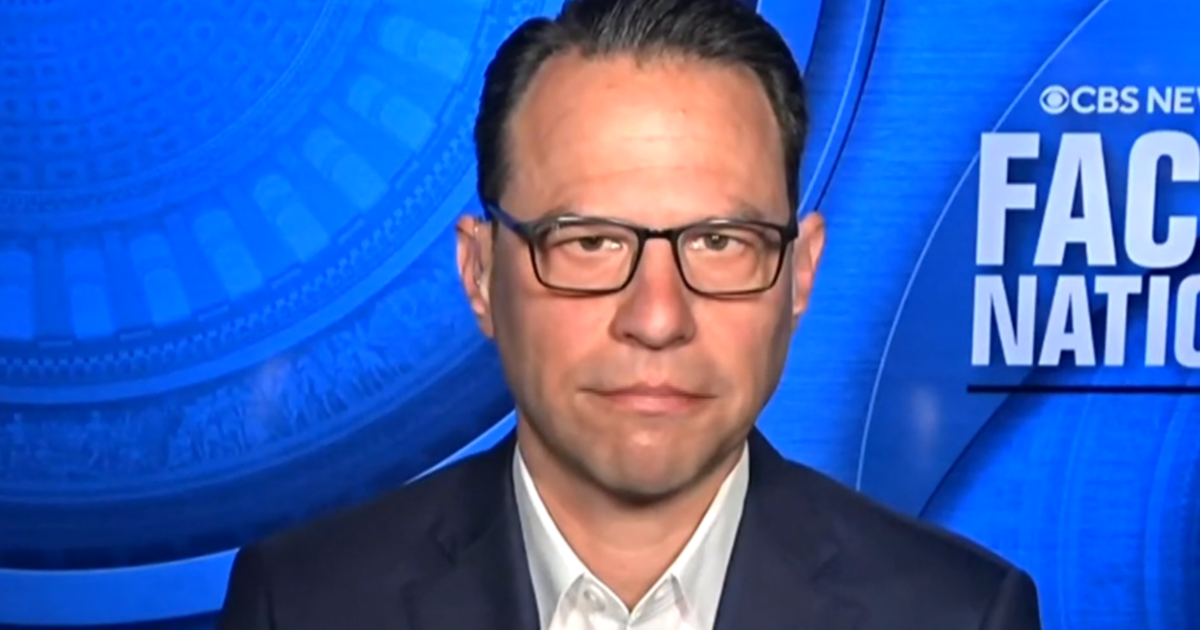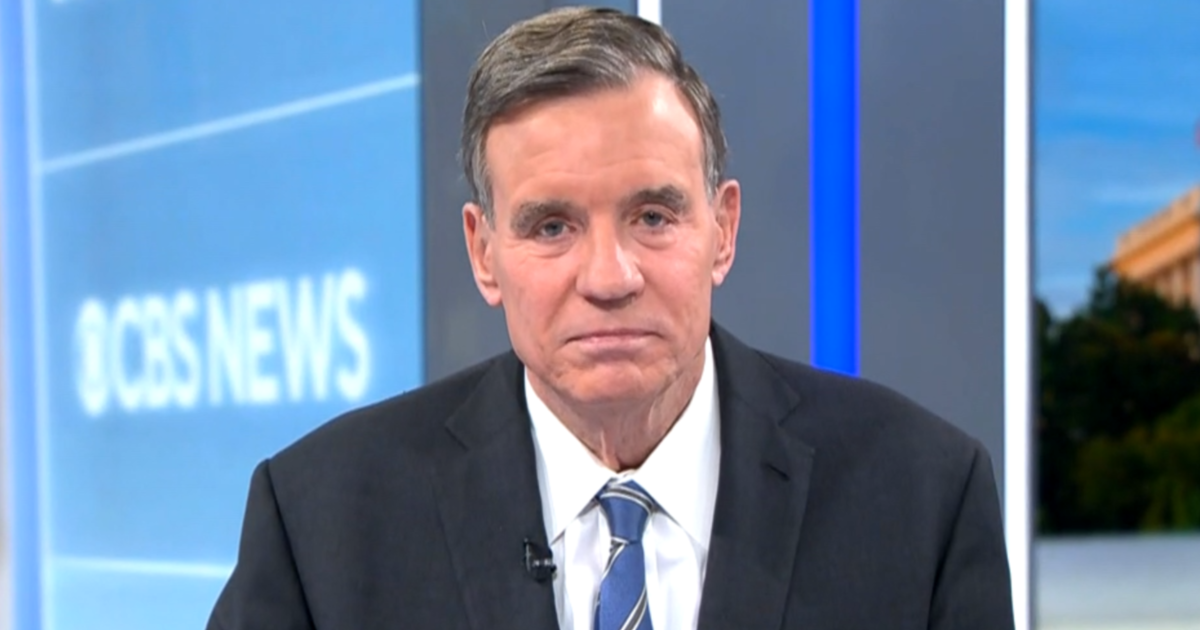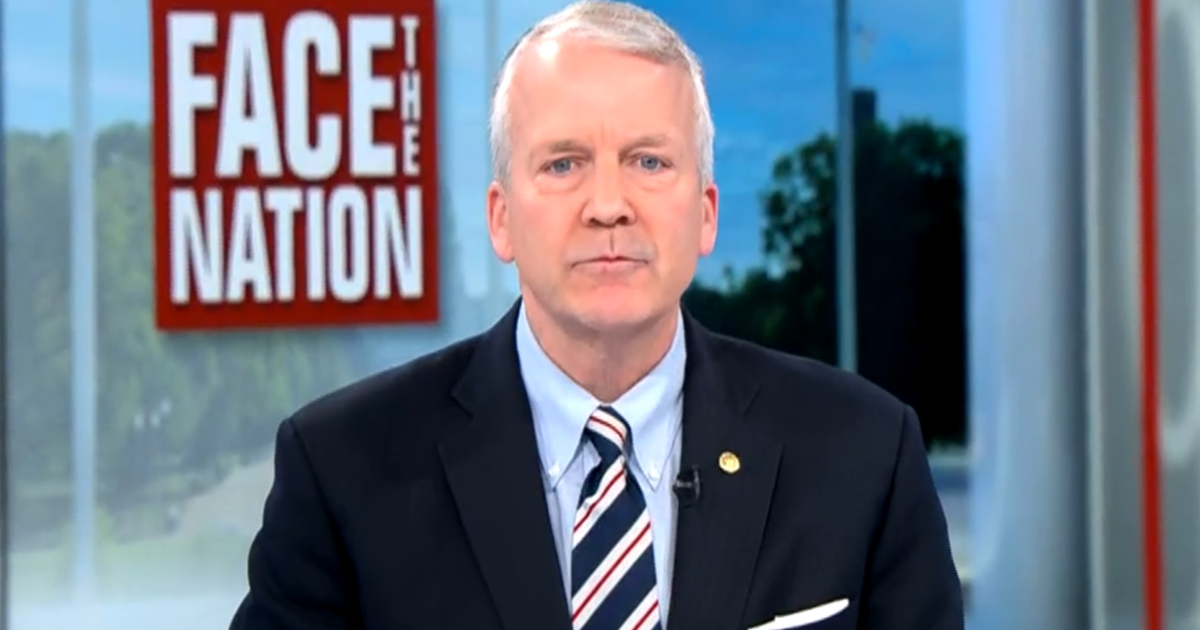Transcript: Scott Gottlieb discusses coronavirus on "Face the Nation," April 4, 2021
The following is a transcript of an interview with former FDA Commissioner Scott Gottlieb that aired April 4, 2021, on "Face the Nation."
MARGARET BRENNAN Good morning and welcome to FACE THE NATION. On this Easter Sunday, we'll take a special look at some of the many inequities exacerbated by COVID-19. We begin with the virus itself. Last week, CDC director Dr. Rochelle Walensky spoke about her fear of "impending doom" and pleaded with Americans to just hold on a little longer. The CDC also gave vaccinated Americans a green light for air travel, but the TSA reported the highest number of airline passengers since the pandemic began. Eighteen percent of Americans have been fully vaccinated. Case numbers are still rising in 27 states and Washington, D.C. In some of those places, the largest number of new cases is among children for the first time. We want to begin with former FDA commissioner Dr. Scott Gottlieb. He sits on the board of Pfizer, and he joins us from Westport, Connecticut. Good morning to you.
DOCTOR SCOTT GOTTLIEB: Good morning.
MARGARET BRENNAN: You know, doctor, we are vaccinating four million people a day. But when you look at the infection levels, do you see a fourth wave?
DR. GOTTLIEB: I don't think there's going to be a true fourth wave. I think we've probably delayed the point at which we can get this behind us for the summer, but we haven't forestalled that opportunity. I think with the rate of vaccination that we're having right now, we're vaccinating, as you said, four million people a day. I think that's probably going to reach five million people a day. And the level of immunity that we already have in the population, we vaccinated more than 100 million Americans. We probably infected about 130 million Americans. So you have somewhere around 200 million Americans that have some level of immunity in them already. I think that there's enough immunity in the population that you're not going to see a true fourth wave of infection. What we're seeing is pockets of infection around the country, particularly in younger people who haven't been vaccinated and also in school-age children. If you look at what's happening in Michigan and Minnesota and Massachusetts, for example, you're seeing outbreaks in schools and infections in social cohorts that haven't been exposed to the virus before. Maybe we're doing a better job sheltering. Now they're out and about getting exposed to the virus and they're getting infected. So the infection is changing its contours in terms of who's being stricken by it right now.
MARGARET BRENNAN: You had long been a proponent of reopening for in-person learning. Given what you're seeing now, do you think schools need to shut back down?
DR. GOTTLIEB: I don't. Schools aren't inherently safe, but they can be made more safe. I think we need to stick to strict mitigation in the schools, so schools that use masks, schools that can implement some kind of distancing, as one epidemiologist referred to it this week, go the full Harry Potter and try to keep students within defined social cohorts so that they're not intermingling in large groups. If you're taking those measures in schools, I think the schools can be made more safe. And I think the benefits of being in school outweigh the risks. But we need to be cognizant of the fact that schools are a risk factor, children are vulnerable to the infection, and that the schools can become focal points for community spread if we're not careful. I think we're seeing some of that in Massachusetts right now where the greatest proportion of the new infections are among school age children. You're seeing the same kind of statistics in Michigan as well. Both states recently reopened schools. And I don't think it's a coincidence.
MARGARET BRENNAN: Dr. Fauci has said on this program, first quarter of 2022 for vaccinations. And then this week, he said by the end of this year, we should have enough information to safely vaccinate kids of virtually any age. What do you think of this timeline? Is it moving faster than anticipated?
DR. GOTTLIEB: I think it's moving quickly. I don't know that it's faster than what we anticipated. We're going to have data, I think, that's going to inform the FDA's ability to make a decision on the emergency use of the vaccine in 12 to 15 for the Pfizer vaccine. So Pfizer, as you know, the company I'm on the board of, as you mentioned, recently unveiled clinical data, a clinical trial of 2,200 kids age 12 to 15 that look quite encouraging. That data is going to be submitted to the FDA. The FDA is going to be in a position to issue an emergency use authorization for that age group. I think that could potentially come in time to have the vaccine available for 12 to 15 before the school year. And I think the way to think about trying to vaccinate children is vaccinate different social cohorts. Do we vaccinate high school-age kids? Right now, the Pfizer vaccine is approved down to 16. So that gets you into the high school age set. Do we start to vaccinate into the middle school? ACIP is ultimately going to have to- the advisory committee to CDC, which is ACIP, is ultimately going to have to make a recommendation on where they think the vaccine should be used in children. And they're going to think about it in terms of the social networks and the social cohorts where they want to introduce the vaccine, high school being the most obvious and perhaps middle school. But I do think we're going to be in a position to vaccinate 12 and above before the fall. I think younger than that could take more time because you're going to want to test a lot of different doses to try to find the lowest possible dose that still is providing a robust immune response to kids.
MARGARET BRENNAN: You know, I'm sure you've seen this too, in your social media feeds. There are a lot of people traveling with their kids right now for spring break. People who didn't celebrate Christmas are celebrating right now, even though Dr. Fauci on this program said it is high risk to walk into an airport. Do you think health officials are- are losing their influence at this point?
DR. GOTTLIEB: I think you need to be careful as a public health official to issue guidance that you know the public is going to largely follow. You don't want to be so out of step with the aspirations and- and where the public is and what the public is going to ultimately engage in, that the guidance just gets ignored. You have to issue the guidance in the context of what the public's willing to do. I do think it's important that people like Dr. Fauci and the CDC director urge caution. I think we should continue to be cautious. We're still in a high prevalence environment. We still have these variants circulating that we don't fully understand. We don't know whether people are getting reinfected by some of these new variants. We should have that information, but we don't. So there's a lot we don't understand about this virus right now. And we don't want to be in a position where we extend the- the epidemic because we weren't prudent about the steps that we were taking right now. That said, people are sensing that there's less risk overall. As people get vaccinated they- they feel themselves that they're at less risk and they are based on the vaccination. And so they're willing to start engaging in the things that they put off for a full year. So we need to recognize that and I think issue the guidance in a way that people can conform to it against, you know, their aspirations, which is that they want to see family again. They want to start socializing. They want to start traveling a little bit.
MARGARET BRENNAN: Last night, Johnson & Johnson said it would assume full responsibility of vaccine manufacturing at this plant in Baltimore that apparently ruined about 15 million doses of a COVID vaccine. Our Sara Cook is reporting that it was at the orders of the Biden administration. Any headline like this hurts confidence. How significant is this problem?
DR. GOTTLIEB: Well, I don't think it should hurt confidence in people's perception of the safety of the vaccine. This was ultimately detected as part of the quality checks that they do in that facility. I don't think they should have been manufacturing two different virus- viral vector vaccines in the same facility. Viruses are sticky. Their genomic material transfers easily. We saw this with the CDC in terms of their failed rollout of their diagnostic tests because they were manipulating too many viruses in one facility and there was some cross contamination. It does appear to be the case that some component of the AstraZeneca vaccine, which they were also manufacturing in this facility, got into the Johnson & Johnson vaccine.
MARGARET BRENNAN: Mhm.
DR. GOTTLIEB: That is the public reporting from officials in the administration.
MARGARET BRENNAN: Yeah.
DR. GOTTLIEB: They shouldn't have been doing that in the same facility. I think what this underscores is we just don't have a lot of excess biomanufacturing capacity in this country--
MARGARET BRENNAN: OK.
DR. GOTTLIEB: --that we had to use at one facility to do these things.
MARGARET BRENNAN: All right, Dr. Gottlieb, thanks as always for your analysis. FACE THE NATION will be right back with Dr. Cecilia Rouse, Chair of the White House Council of Economic Advisers. Stay with us.



